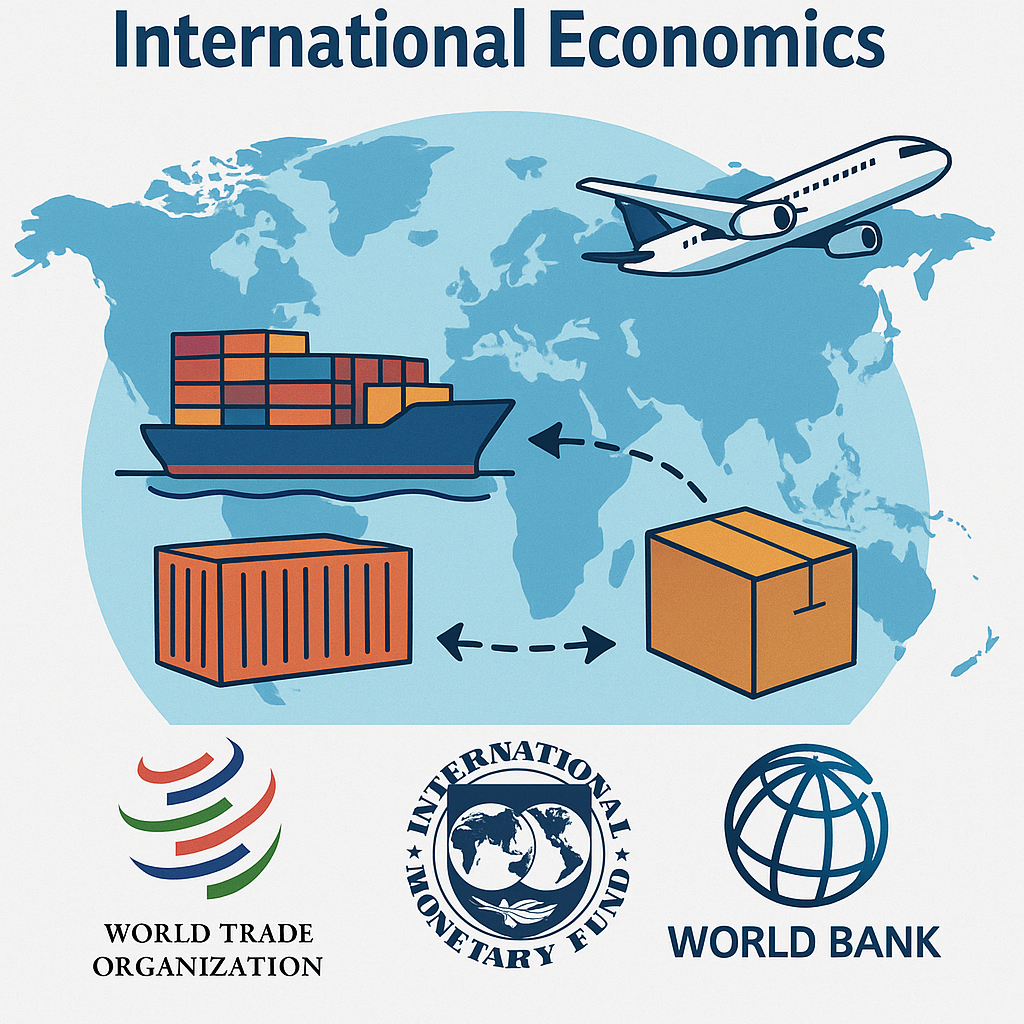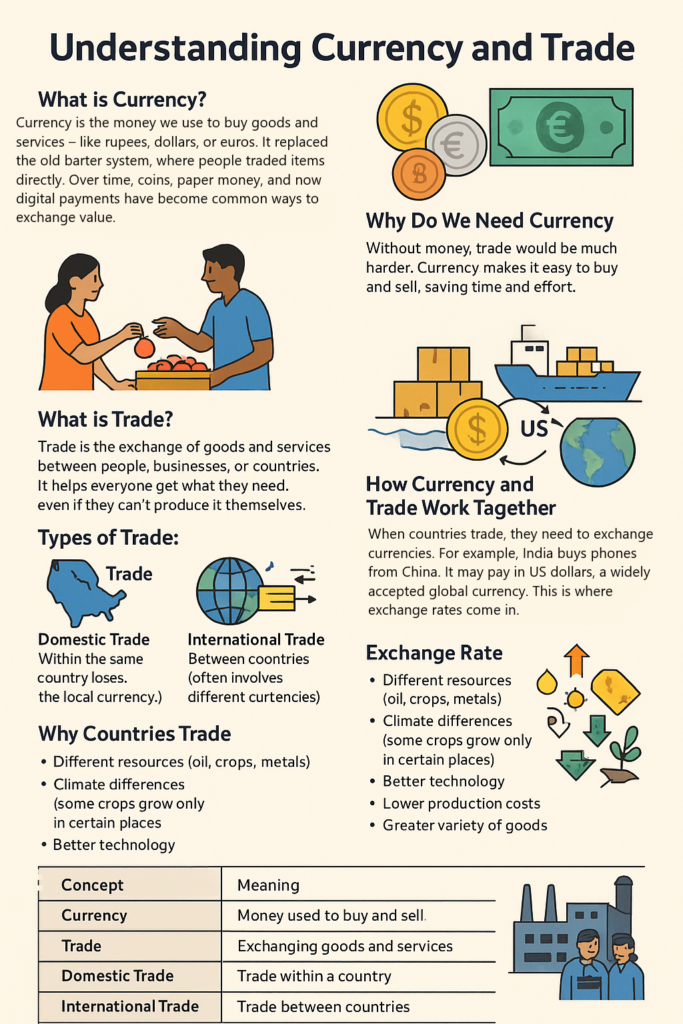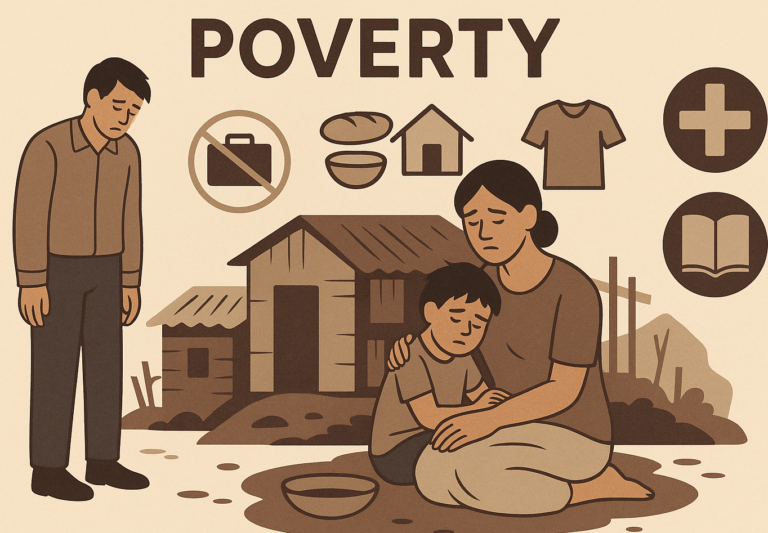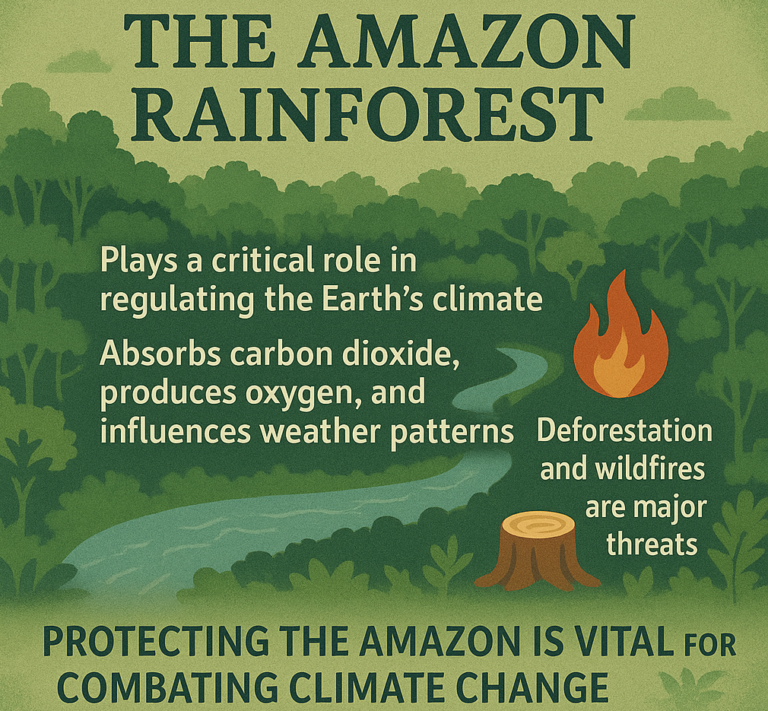International Economics is about how countries trade with each other and the important global organizations, like the WTO and IMF, that help manage this trade and support countries’ economies.

1. International Trade
International Trade refers to the exchange of goods, services, and capital across borders. Countries engage in trade to get products and services that they cannot produce or are cheaper to import.
- Why do countries trade?
Countries trade because they don’t have all the resources to make everything they need. Each country has its own specialties—for example, India may be great at producing software, while Brazil is good at growing coffee. By trading, both countries can get what they need at a lower cost. - How does trade happen?
Countries trade through exports (selling goods to other countries) and imports (buying goods from other countries). For example, India may export rice to the U.S. and import machinery from Germany. - Trade Barriers and Agreements
Sometimes, countries face barriers that make it harder to trade, like tariffs (taxes on imports) or quotas (limits on how much can be imported). Countries can make trade agreements to remove or reduce these barriers. One famous trade agreement is the North American Free Trade Agreement (NAFTA) between the U.S., Canada, and Mexico.
2. World Trade Organization (WTO)
The WTO is an international organization that helps countries negotiate trade agreements and solve trade problems. It was created to promote free trade and ensure that trade between countries is fair and orderly.
- What does the WTO do?
- Regulates Trade: The WTO makes sure that countries follow agreed-upon trade rules. For example, it ensures that countries don’t unfairly restrict imports or give special treatment to their own businesses.
- Settles Disputes: If two countries have a trade dispute, the WTO helps them find a solution. For example, if one country accuses another of unfairly subsidizing their products, the WTO helps resolve the issue.
- Negotiates Agreements: The WTO helps countries negotiate agreements on lowering tariffs or removing trade barriers.
- Why is the WTO important? It creates a level playing field for international trade, making it easier for countries to trade and increasing the flow of goods and services globally.
3. International Monetary Fund (IMF)
The IMF is an organization that helps countries manage their economies by providing financial assistance and advice.
- What does the IMF do?
- Lends Money to Countries: If a country faces an economic crisis (like running out of money or facing high inflation), the IMF can lend it money to help stabilize the economy. However, the country has to agree to make certain changes in their economic policies.
- Helps with Currency Problems: The IMF also helps countries with problems in their currency systems (like when a country’s currency loses value too quickly).
- Monitors Global Economy: The IMF keeps an eye on the global economy and provides advice to countries on how to make their economies more stable.
- Why is the IMF important? The IMF plays a key role in helping stabilize the global economy by offering financial support and economic advice to struggling countries.
4. World Bank
The World Bank is another international organization that focuses on providing loans and grants to developing countries to help them build infrastructure like roads, schools, and hospitals.
- What does the World Bank do?
- Lends Money: The World Bank lends money to low and middle-income countries to help them fund big projects that can improve their economies.
- Fights Poverty: The World Bank works on reducing poverty by investing in development programs, education, and healthcare in poorer countries.
- Promotes Growth: It helps countries build strong economies by funding projects that create jobs, improve living standards, and reduce inequality.
- Why is the World Bank important? It helps countries develop by investing in projects that improve infrastructure and quality of life. This makes countries more stable and better able to participate in the global economy.
5. Other Key International Organizations
- United Nations (UN): The UN is a global organization that works to promote peace, security, and cooperation among countries. It also helps in setting up international rules on trade, human rights, and the environment.
- G20: The Group of 20 (G20) is a forum of the world’s major economies, including countries like the U.S., China, India, and the EU. They discuss global economic issues, such as trade policies, financial stability, and economic growth.
- OECD (Organization for Economic Co-operation and Development): The OECD helps governments create better economic policies by providing research and guidelines on trade, investment, and development.
6. How International Economics Affects You
International Economics impacts us all in many ways:
- Cheaper Products: International trade allows us to buy products from other countries at lower prices. For example, electronics from Japan or cars from Germany might be cheaper because of global trade.
- Job Opportunities: Trade agreements and investments can create new job opportunities, as companies expand to new markets and need more workers.
- Currency Exchange: If you travel abroad or do business in other countries, you need to exchange your local currency for another (like converting Indian Rupees to U.S. Dollars). The value of currencies can be affected by international economic factors.
- Economic Growth: Global cooperation and trade agreements help countries grow their economies, which can lead to higher income levels, better healthcare, and improved living standards.
Key Takeaways
- International Trade helps countries get products they cannot make or those that are cheaper to import.
- WTO helps regulate and ensure fair trade between countries.
- IMF helps countries facing economic crises by providing financial support and advice.
- World Bank supports the development of poorer countries by funding infrastructure and poverty reduction projects.
- Global Cooperation through organizations like the WTO, IMF, and World Bank makes it easier for countries to grow economically and help each other.
By understanding how these organizations work and how countries trade, you can see how international economics connects people and economies worldwide.











